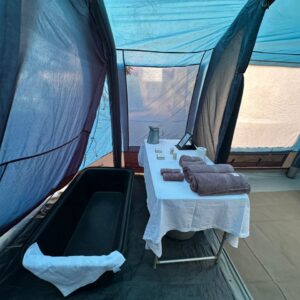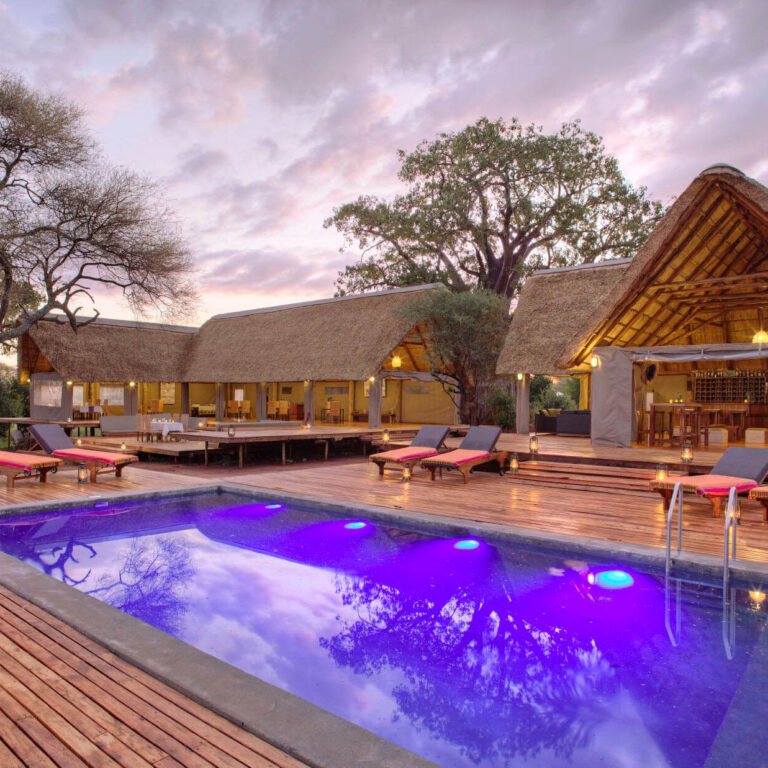Africa, a continent of breathtaking diversity, raw wilderness, and vibrant cultures, holds an undeniable allure for the adventurous spirit top tips for solo female travellers in Africa. For solo female travelers, it promises a journey of unparalleled freedom, profound self-discovery, and intimate encounters with nature and people. While the thought of exploring Africa alone can seem daunting, with the right preparation and mindset, it transforms into an incredibly empowering and rewarding experience.
For solo female travelers in Africa, prioritizing safety and being well-prepared are key. Tips include trusting your instincts, staying connected, respecting local customs, and choosing reputable accommodations and transportation. Packing light, learning basic local phrases, and sharing your itinerary with someone you trust are also crucial. The key to a successful and safe solo female trip across Africa lies not in fear but in intelligent planning, heightened awareness, and a confident demeanor. By adopting proactive strategies, you can unlock the continent’s magic, ensuring your adventure is filled with joy, wonder, and security.
1. Conduct Thorough Research on Your Destination
Knowledge is your most powerful tool. Before you even consider booking, immerse yourself in comprehensive research specific to the African countries and regions you plan to visit. Understanding the cultural norms, social dynamics, and geographic layout of your destination can significantly enhance your safety and enjoyment. Read travel blogs, guidebooks, and forums dedicated to female travelers in Africa. Familiarizing yourself with local customs will help you navigate potential challenges more smoothly.
Political Stability and Current Events. Stay updated on the political climate and any recent unrest in your chosen areas. Government travel advisories are a good starting point, but also seek news from reputable international media. Local Customs and Social Norms. Understand the cultural etiquette, especially regarding dress codes, greetings, and interactions between genders. In many African cultures, modesty in dress is appreciated, particularly outside of beach resorts or major cities. Being aware of and respecting these norms can help you blend in and avoid unintended offense or unwanted attention.
Specific City/Area Information. Research safe neighborhoods for accommodation, areas to avoid (especially after dark), and common scams that target tourists. What’s safe in one city might not be in another. Women-Specific Travel Advice. Seek out blogs, forums, or online communities dedicated to solo female travel in Africa. These often provide invaluable, nuanced advice from women who have firsthand experience.
2. Prioritize Safety by Choosing Accommodation Wisely
Your choice of lodging significantly impacts your safety and comfort as a solo female traveler. This is one area where it’s wise to prioritize security over cost if necessary. Select accommodations that are well-reviewed and cater specifically to solo female travelers. Hostels often provide a social atmosphere with opportunities to meet fellow travelers, while hotels with good reputations for safety can offer a more relaxed stay. Consider staying in locations that are centrally located but still secure, and always read reviews to assess safety perceptions.
Read Reviews Carefully. Pay close attention to reviews from other solo female travelers. Look for comments on the security features, the safety of the surrounding neighborhood, staff attentiveness, and overall atmosphere. Location is Key. Choose accommodations in well-lit, centrally located, or reputable areas. Avoid isolated properties or those in areas known for high crime rates, particularly if you plan to walk around after dark.
Security Features. Look for properties with 24/7 reception, secure entry systems, sturdy locks on doors and windows. Consider bringing a portable door lock or a rubber doorstop for extra peace of mind in your room. Reputable Establishments. Stick to well-known hotels, established guesthouses, or highly-rated hostels (with female-only dorm options if applicable).
3. Pack Smart and Dress Appropriately
Efficient packing and culturally sensitive dressing are crucial for comfort and safety. Pack light and prioritize versatile clothing that respects local customs while ensuring your comfort. Modesty is often appreciated in many African cultures, so aim for outfits that are both stylish and respectful. Additionally, prepare for the climate; lightweight fabrics and layers can help you adjust to varying temperatures throughout your journey.
Modesty is Prudent. In many African countries, particularly outside of tourist enclaves or coastal resorts, modest clothing is generally advised. This means covering shoulders and knees. Loose-fitting long skirts, capri pants, or trousers and T-shirts or tops that cover the shoulders are often appropriate.
Neutral Colors for Safari. If you’re on safari, stick to neutral tones like khaki, olive green, tan, and brown. These colors help you blend into the environment, are less likely to attract insects like tsetse flies (which are drawn to dark blues and blacks), and don’t make you stand out.
Layering. African weather can vary dramatically. Pack versatile layers that can be added or removed as temperatures fluctuate from chilly mornings to hot afternoons. Minimize Valuables. Leave expensive jewelry, flashy watches, and unnecessary tech at home. The less you draw attention to your possessions, the better.
4. Stay Connected and Share Your Itinerary
A functional communication plan is your lifeline, especially when traveling solo. Keep your phone charged and consider using local SIM cards to maintain connectivity. Share your travel plans with a trusted friend or family member, including details of your itinerary, accommodation, and transport arrangements. Regular updates can provide a safety net while you explore.
Local SIM Card. Upon arrival, purchase a local SIM card. This is often inexpensive and provides affordable data for maps, research, communication with your guides/drivers, and local calls. It’s far more reliable than relying solely on Wi-Fi. Portable Power Bank. Always carry a fully charged, high-capacity power bank. Running out of battery on your phone can quickly become a significant safety risk, especially if you need to access maps or contact someone.
Share Your Itinerary. Provide a detailed itinerary (including flight information, accommodation names/addresses, and planned activities) to a trusted family member or friend back home. Agree on regular check-in times (e.g., a daily text or weekly call). Inform Your Accommodation. Let the front desk know your estimated departure date and if you expect to be out late.
5. Learn Basic Local Language Phrases
Making an effort to speak a few basic phrases in the local language (e.g., Swahili in East Africa) goes a long way. While English is widely spoken in many African countries, learning basic phrases in the local language can enrich your travel experience. Simple greetings and polite expressions not only show respect but can also help create rapport with locals. It may open doors and make interactions more friendly and genuine. Build Rapport. Locals appreciate the effort, often leading to warmer interactions and a more authentic experience. Practicality. Simple greetings, “please,” “thank you,” “hello,” “goodbye,” and phrases for asking directions or prices can be incredibly useful. Emergency Situations. Knowing how to say “help,” “police,” or “doctor” could be vital in an emergency.
6. Use Reliable Transport Options and Avoid Night Travel
Transportation can be a common area for safety concerns, especially when solo. Opt for reputable transport services, such as registered taxis or transport apps, to minimize risk top tips for solo female travellers in Africa. Public transportation can be a great way to immerse yourself in local life, but ensure it’s safe. Additionally, avoid night travel whenever possible, as it can increase the chance of encountering unsafe situations.
Reputable Operators. Always use taxis recommended by your hotel or a trusted tour operator. Avoid unmarked cabs. In some cities, ride-sharing apps like Uber or Bolt are available and can offer a safer alternative as trips are tracked. Pre-Book Transfers. Arrange airport transfers with your accommodation or tour company in advance to avoid being vulnerable upon arrival. Avoid Walking Alone at Night. This is a universal safety rule but is particularly important in unfamiliar areas of African cities top tips for solo female travellers in Africa. If you must go out, use a reliable taxi service. Inter-city Travel. For long-distance bus or train journeys, research reputable companies and avoid traveling at night if possible.
7. Trust Your Instincts and Set Clear Boundaries
Your intuition is a powerful, innate warning system. If a situation doesn’t feel right, don’t hesitate to remove yourself. Setting clear boundaries, whether with vendors, fellow travelers, or locals, is crucial for maintaining control of your space and comfort. Listen to Your Gut. If a person, place, or situation feels “off” – even if you can’t logically explain why – trust that feeling. Don’t dismiss a gut feeling as irrational. Remove Yourself. If a situation makes you uncomfortable, top tips for solo female travellers in Africa, politely but firmly excuse yourself, change direction, or enter a public place. Your safety is always worth any perceived awkwardness. Be Assertive. Don’t be afraid to say “no” firmly and clearly to unwanted advances, persistent hawkers, or uncomfortable invitations.
8. Carry Essential Safety Items
A few simple items can provide significant peace of mind and practical assistance. Equipping yourself with essential safety items can help you feel secure, the essential guide to solo female travel in Africa. Consider carrying a whistle, pepper spray (if legal), a personal safety alarm, and a small first-aid kit. Additionally, have your emergency contacts saved on your phone for quick access.
Personal Alarm. A small, loud personal alarm can be effective at deterring unwanted attention and drawing help, the top tips for solo female travellers in Africa. Whistle. Similar to a personal alarm, a whistle can be used to signal for help. Mini First Aid Kit. Beyond basic cuts and scrapes, include specific medications you might need for common travel ailments like stomach upsets, headaches, and motion sickness. Portable Door Lock/Doorstop. For added security in your room. Pepper Spray/Mace (Check Legality!). While some travelers carry these, it is CRITICAL to research their legality in your specific destination. In many African countries, carrying such items is illegal and could lead to serious legal consequences. Use with extreme caution and only if legal and you are comfortable with its use.
9. Immerse Yourself Respectfully in Local Culture
Engaging authentically with local cultures enriches your journey and often enhances your safety by fostering positive interactions. Participate in cultural activities, try traditional foods, and attend local events. However, always be mindful and respectful of customs and traditions to foster positive exchanges. Observe and Learn. Pay attention to how locals interact, dress, and behave. Ask Permission. Always ask before taking photos of people. Engage with Locals. Be open to friendly conversations, but maintain a respectful distance and be mindful of personal space. Support Local Businesses. Eat at local restaurants, buy from local artisans, and use local services. This benefits the community and gives you authentic experiences.
10. Prepare for Health and Wellness
Health preparedness is paramount for solo travel in Africa. Before your trip, consult with a healthcare professional about vaccinations and medications suitable for your travel destination. Pack essential medicines and hygiene items, and stay hydrated to maintain wellness during your travels.
Vaccinations. Consult your doctor or a travel clinic well in advance (at least 6-8 weeks) for all necessary vaccinations (e.g., Yellow Fever, Hepatitis A/B, Typhoid, Tetanus, Rabies). Carry your vaccination card.
Malaria Prophylaxis. Discuss anti-malarial medication with your doctor if traveling to malaria-risk areas. Use mosquito nets where provided and apply repellent diligently. Water Safety. Drink only bottled or purified water. Carry a personal water filter or purification tablets if venturing to remote areas.
Sun Protection. The African sun is intense. Use high SPF sunscreen, wear wide-brimmed hats, and sunglasses. Food Safety. Be cautious with street food and ensure food is cooked thoroughly. Emotional Well-bein. Solo travel can sometimes be lonely or overwhelming. Prioritize self-care, connect with other travelers, and don’t hesitate to reach out to your support network if needed.
- Safety Tips for Solo Female Travelers
- A Complete Guide To African Safaris For Solo Travellers
- Is Tanzania Safe for Solo Female Travelers?
- Places to visit in Tanzania as a Solo Female traveller
- A Solo Traveller’s Guide to Tanzania
Tips for Solo Female Travelers in Africa FAQs
Is Africa safe for solo female travelers? Africa is a vast continent, and safety varies by region and country. Many popular tourist destinations are very safe, but thorough research and adherence to safety tips are crucial.
What kind of clothing should I pack for solo travel in Africa? Prioritize modest, loose-fitting clothing that covers shoulders and knees, especially outside of major cities or beach areas. Neutral colors are best for safaris.
How can I stay connected while traveling solo in Africa? Purchase a local SIM card upon arrival, carry a fully charged power bank, and regularly share your itinerary and check-in with a trusted contact back home.
Should I learn any local language phrases? Yes, learning basic phrases like greetings and “thank you” in the local language (e.g., Swahili) can significantly enhance your experience and interactions with locals.
What’s the best way to get around safely in African cities? Use reputable taxis recommended by your hotel or reliable ride-sharing apps (like Uber/Bolt where available). Avoid unmarked vehicles and walking alone at night.
How important is trusting my instincts? Extremely important. If a situation or person makes you feel uneasy, trust that feeling and remove yourself from the situation immediately.
What essential safety items should I carry? A personal alarm or whistle, a mini first aid kit, and potentially a portable door lock/doorstop for your accommodation. Research the legality of items like pepper spray before carrying them.
How can I ensure my health and wellness on a solo trip to Africa? Get all recommended vaccinations (including Yellow Fever if required), consult your doctor about malaria prophylaxis, drink only safe water, and practice good food hygiene.
Is it okay to post my travels in real-time on social media? It’s generally safer to delay posting pictures or check-ins until you’ve left a location, and avoid sharing precise, real-time identifying details that indicate you’re traveling alone.
What kind of travel insurance do I need for Africa? A comprehensive policy that covers emergency medical treatment, emergency medical evacuation, and trip cancellation/interruption is absolutely essential.
Final thought
Solo female travel in Africa is an extraordinary, transformative experience that is within reach with careful planning and a confident approach. By conducting thorough research, prioritizing safety in your choices, connecting smartly, and embracing the rich cultures with respect, you will not only navigate the continent securely but also open yourself up to adventures that will redefine your understanding of the world and your own strength. Africa’s spirit is waiting to be discovered, and with these tips, you’re ready to explore it on your own empowered terms.







